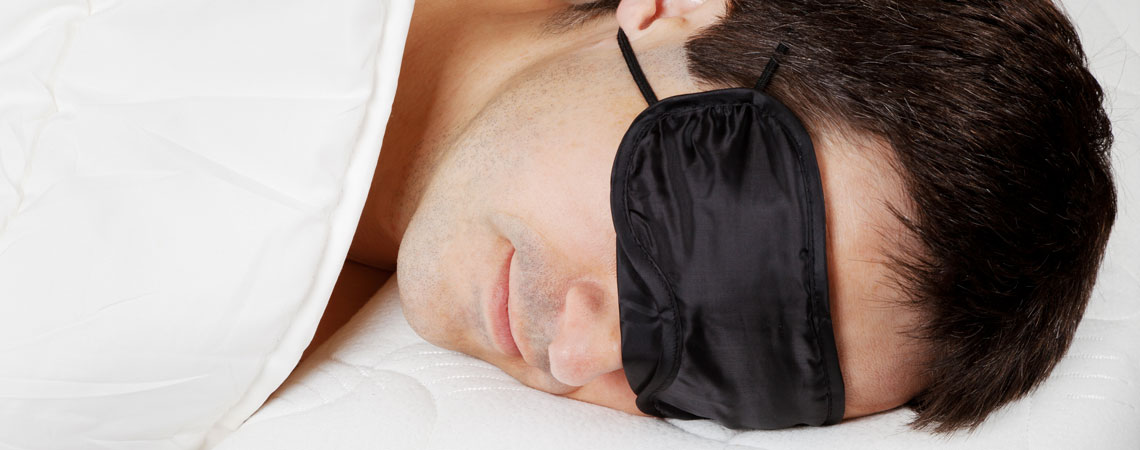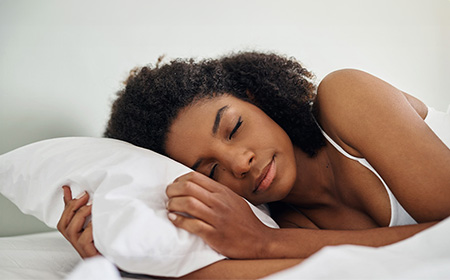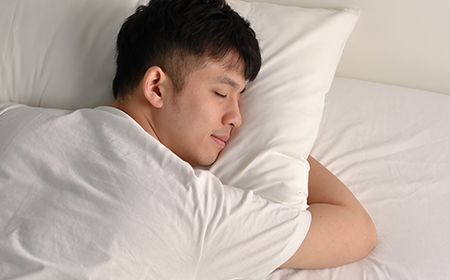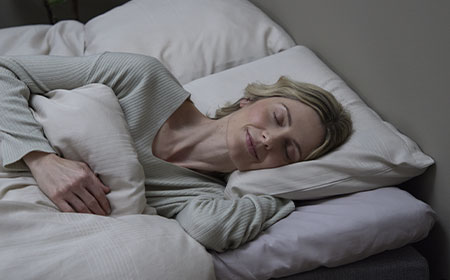Maybe you know the feeling? You toss and turn in bed and end up covering your eyes to shut out the light. Finally, you can go to sleep. Exposure to light has a profound effect on your sleep quality as it is much easier to fall asleep in the dark than in the light.
One of the main reasons for insomnia is light, whether it be natural (for instance when the sun sets very late and rises very early in summer) or artificial light. Some possible problems could be a neon sign or a street lamp outside your window, or a lamp in a nearby room. But the biggest culprit – and the most common – is the blue light from a television, a glowing computer monitor, a smartphone, or a tablet. Even something with a small blue light, such as a clock radio display, can disrupt your sleep.
Melatonin: The sleep hormone
Your body is confused. Is it night or day? “Thanks” to artificial lighting, your body is having a hard time figuring it out.
Your brain considers darkness as a signal that it's time to get some shut-eye. As the lights dim the brain starts producing melatonin, aka “the sleep hormone”. Melatonin regulates your sleep-wake cycle, as it lowers your blood pressure, glucose levels, and body temperature, all of which are key to a restful sleep. Your brain starts releasing melatonin a few hours before bedtime, and its production peaks in the middle of the night.
The retina in your eye is responsible for detecting the presence or absence of light. When it starts getting dark, the retina sends a message to your brain signaling that it's time to initiate the production of melatonin, and your brain can begin preparing for sleep. In the morning the process is reversed; your retina detects increasing levels of light and wakes your body up.
Knowing this, it's easy to see why you should avoid light at night when you approach bedtime. Light and darkness are crucial to your internal clock and can strengthen or weaken your sleep quality. But what to do in a modern society, where light is ever-present and darkness is a rare luxury? Here are a few tips to improve your sleep and raise your daytime energy level.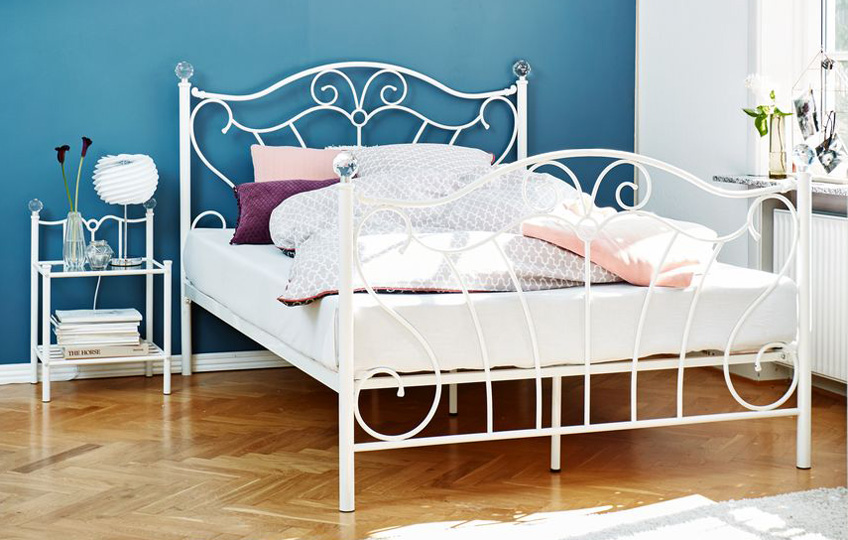
1. Make sure that your surroundings are dark
It's crucial to block out the light in your bedroom. Use blackout curtains or blinds and make sure to dim the lights at least one hour before bedtime. Use low-watt, dimming bulbs in lamps.
If you have trouble making it completely dark in the bedroom, you can wear an eye mask. An eye mask will deepen darkness and be a highly effective tool for limiting your light exposure at night.
2. Avoid blue light at least 60 minutes before bedtime
Avoid watching television, and turn off all your light-emitting gadgets and devices before bed. Read a book or listen to music instead. It takes some time for the body to wind down from technology's stimulating effects, therefore it's a good idea to turn off all digital devices in your bedroom.
3. Go outside during the day
Go outside if you have the chance. Your brain will benefit from the powerful contrast between a bright day and a dark night. This is a clear message that it's time to sleep when night arrives. Even with the lights turned on, interiors are dim compared to the light outdoors. You may not notice this yourself, but even a cloudy winter day is brighter than an artificially lit room in your home.
Sources
https://www.tuck.com/light-and-sleep/
https://sleepfoundation.org/bedroom/see.php
http://splus.resmed.com/darkness-matters-how-light-affects-sleep/
